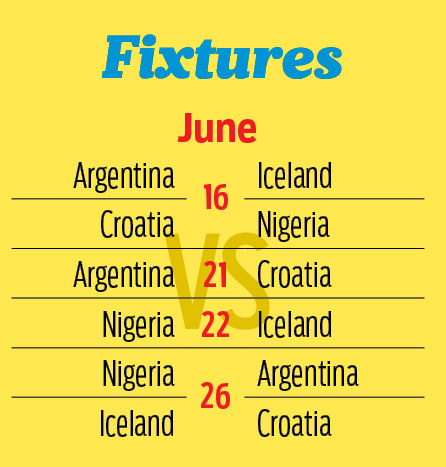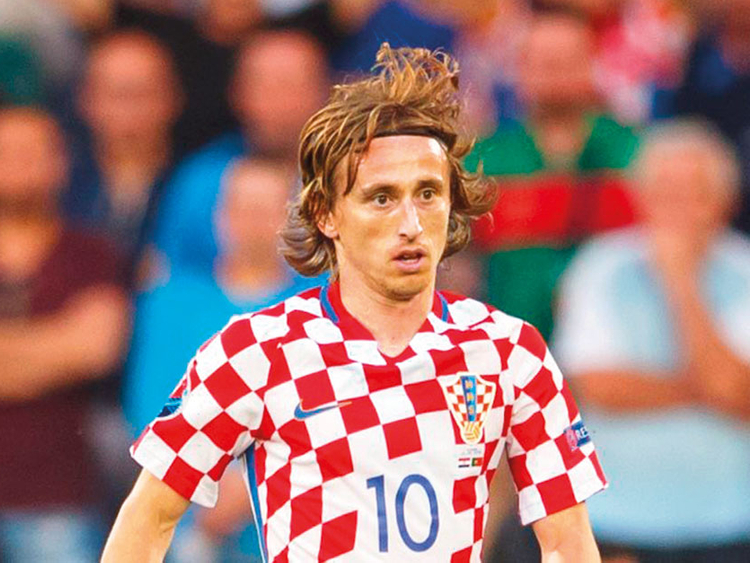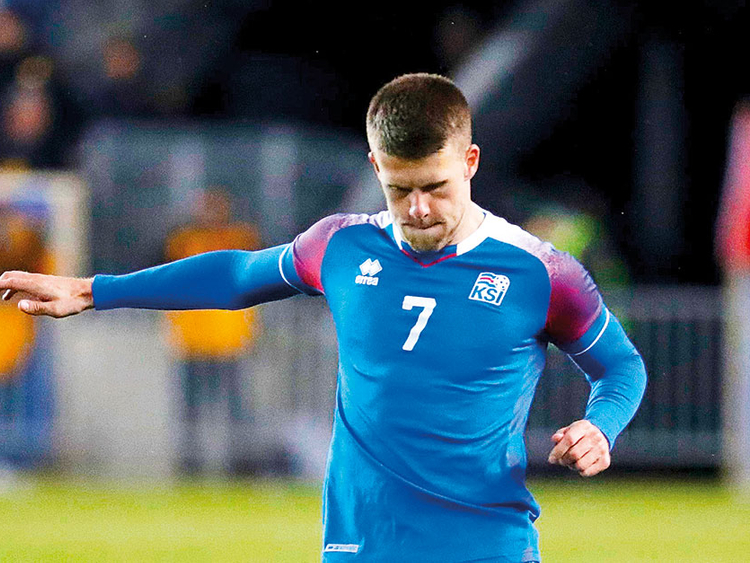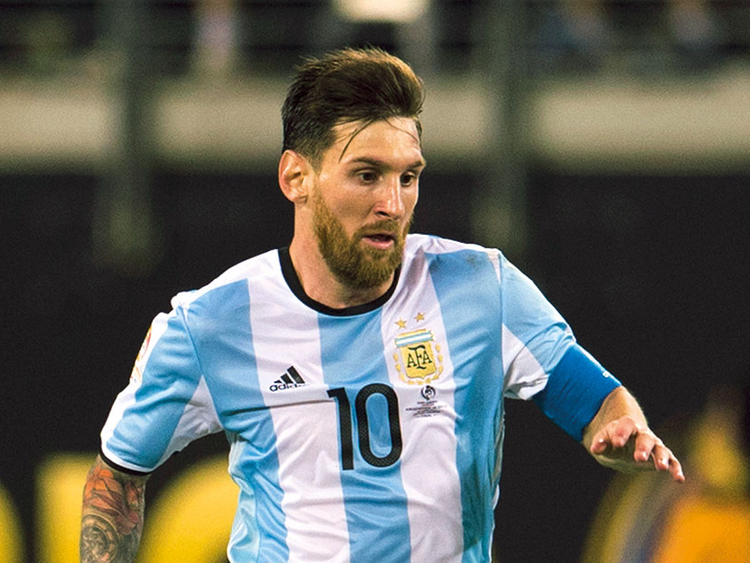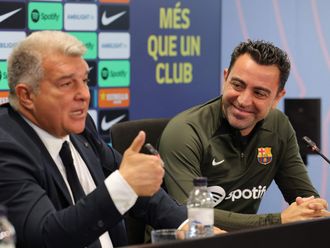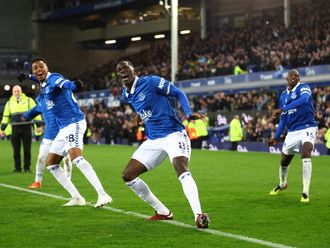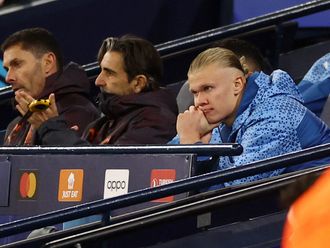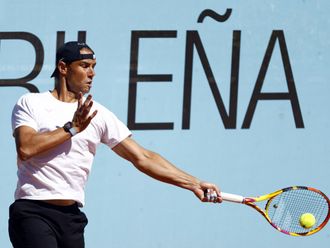Argentina
Appearances: 16
Best finish: Champions in 1978, 1986
Manager: Jorge Sampaoli
Star player: Lionel Messi
Argentina were in a bit of troubled waters en route to sealing their place for Russia. The South American giants only managed to confirm their place in the last qualification game, thanks to Barcelona star Lionel Messi’s timely hat-trick in the deciding match against Ecuador. Coaches were changed — as many as three to put their campaign back on track. Gerardo Martino resigned in 2016 after Argentina lost to Chile on penalties in the final of the Copa America Centenario.
Even Messi, planned to end his national team career after the painful loss. Edgardo Bauza, who took over from Martino, convinced him to reverse his decision. Bauza, however, only lasted until April 2017 as head coach, and since then the team has been managed by Jorge Sampaoli.
This World Cup would also see the last of some of their senior players in Russia — Sergio Romero, Angel Di Maria, Sergio Aguero, Gonzalo Higuain, Lucas Biglia and Ever Banega. For captain Messi it could probably be the last opportunity to be a part of a World Cup winning team.
Gabriel Mercado, Javier Mascherano and Nicolas Otamendi will be in-charge of the backline, while Biglia and Enzo Perez will occupy the central mid-field positions. Messi will have the support of Juventus striker Paulo Dybala upfront. Icardi, the Inter Milan striker, and skipper Messi with Aguero, Manchester City’s prolific striker, are the backbone for the team in their quest to title.
Argentina are two-time winners of the World Cup. In 1978, as hosts they beat the Netherlands at Buenos Aires. Then in 1986, Argentina were led to victory by the mercurial Diego Maradona, who scored a total of five goals, including the two most memorable goals. One into the England netknown as the ‘Hand of God’ and then a mesmeric run followed by a fine finish, which is voted by Fifa as the greatest goal in the history of the World Cup and the Goal of the Century.
Argentina have also finished runners-up at Fifa World Cup tournaments three times: in 1930, 1990, and 2014.
Iceland
Appearances: 0
Best finish: 0
Manager: Heimir Hallgrimsson
Star player: Gylfi Sigurdsson
Iceland, who shocked the football world to reach the quarter-finals of Euro 2016 and defeat England along the way, is the smallest nation to ever qualify for the World Cup with population of just 330,000.
Russia 2018 will be their first Finals after coming close to reaching Brazil 2014, losing to Croatia in the play-offs.
Iceland too had their own share of challenges to qualify from a tough group alongside Croatia, Turkey and Ukraine. They had to overcome the loss of their main striker Kolbeinn Sigthorsson to injury and Swedish manager Lars Lagerback’s departure.
By topping the group, the new coach Heimir Hallgrimsson has proved that he is a more shrewd tactician than Lagerback. Hallgrimsson began his coaching career in his home town of Vestmannaeyjar. When Lagerback came to Iceland in 2011, he chose Hallgrimsson as his assistant. For three years Hallgrimsson worked as an assistant coach and in 2014 he became Lagerback’s co-manager.
Spearheading the teams challenge upfront will be midfielder Gylfi Sigurdsson, who plays for Premier League club Everton after a big-money move from Swansea. He featured in all their World Cup qualifying games and scored four goals and involved in three assists. He also scored the winning goal against Kosovo, which booked Iceland’s ticket to Russia.
More importantly they also have players playing in the Russian Premier league.
Gylfi’s namesake Ragnar Sigurdsson is an experienced centre-back for Rostov and the latter too has figured in all their qualifiers. He has been a former Krasnodar and Rubin Kazan player and also had a stint with London club Fulham. Central defender Sverrir Ingi Ingason plays for Rostov and will be joining force with Sigurdsson in middle of defence. Iceland captain and central midfielder Aron Gunnarsson is another fierce competitor and can control the game well.
Iceland mainly opt for a 4-4-2 combination but Hallgrimsson also has been very effective with 4-5-1 in certain games.
Nigeria
Appearances: 5
Best finish: Round of 16 at 1994 USA World Cup
Manager: Gernot Rohr
Star player: Victor Moses
The Super Eagles are the crowd favourites and have always impressed with their achievements.
The underdogs were in danger of missing out on qualifying, despite changing several managers. Gernot Rohr took over in August 2016 and in the end they qualified comfortably with a game to spare despite being drawn with Cameroon, Algeria and Zambia.
Victor Moses, who has revitalised his career at Chelsea, was the top-scorer in qualifying with three goals in just four matches. Moses was part of the team that won the 2013 Africa Cup of Nations and he also played at the 2014 World Cup in Brazil.
Ahmad Musa had shown lot of promise at CSKA Moscow and that earned him a move to 2015/16 Premier League champions Leicester City, but having spent most of the time on the bench, he returned to CSKA on loan in January with the hope of gaining more game time.
Leicester also have two other Nigerian internationals in their ranks — forward Kelechi Iheanacho, former Manchester City, and defensive midfielder Wilfred Ndidi – both of whom are young but more than capable of making their mark at Russia 2018.
Alex Iwobi of Arsenal is another big name that will lead the flight of the Super Eagles. Iwobi, who played for England’s youth teams, has opted to play for the country of his ancestors. Under Rohr, Nigeria have developed into a good counter-attacking side with a sturdy defence and the calm presence of John Obi Mikel to funnel balls to the attack.
Russia will be Nigeria’s sixth appearance at the Finals since debuting in 1994, the team’s best result is reaching the round of 16. At USA 1994 the team were knocked out by Italy. Despite leading until the 89th minute, Roberto Baggio rescued the favourites by scoring the equaliser and then grabbing the winner in extra time.
Then in France 1998, Nigeria went on to the knockout stage once again but this time they were shown the door by Denmark 4-1. In 2014 Nigeria, with Musa and Peter Odemwingie, faced France in the round of 16 and lost after a goal by Paul Pogba and an own goal by Everton man Joseph Yobo.
Croatia
Appearances: 4 (another 8 times as part of Yugoslavia from 1930-1990 period)
Best finish: Third place, 1998 France World Cup
Manager: Zlatko Dalic
Star player: Luka Modric
Croatia qualified for Russia 2018 via the play-offs, after a tough group campaign saw them win six of their 10 games but draw two and lose two. They lost to Iceland, who advanced while Croatia had to beat Greece in a play-off.
That was a scare considering the talent at Croatia’s disposal. They have some world-class players already plying their trade in leagues across Spain, Italy and Germany, but also have plenty of emerging talent.
Though Ivan Rakitic and Mario Mandzukic are as crucial as any, Luka Modric’s experience is indispensable. The captain and Real Madrid midfielder is the driving force for his Barcelona counterpart Rakitic and Mandzukic, the biggest source of their goals in qualifying. After leading Juventus to another Serie A title, he will be looking to add to his 30 goals for the national team.
Also feeding from the left wing will be Ivan Perisic as a counter-attacking threat with his defence-splitting passes. Orchestrating them will be cool-headed manager Zlatko Dalic. Having taken over just before the winner-takes-all game against Ukraine in qualifying, the coach, with stints with clubs in Saudi Arabia and the UAE, is a calming influence.
Until 1991, Croatia was part of Yugoslavia and supplied players to its national team. After the country dissolved, Croatia was recognised immediately by Fifa but Uefa took another year to approve membership as hence Croatia missed qualifying for the 1994 World Cup. In the World Cup in France, the team, led by Davor Suker, made a major impact and took them through to the knock-out stages despite losing to Argentina.
Then after beating Romania and Germany in the quarters they made it to the semis where they were beaten by eventual winners France. They took third place by defeating the Netherlands in the play-offs.
The team later took part in three World Cups — 2002, 2006, 2014 but failed to qualify from the group stage. The closest they came to the knockout stages was at Germany 2006.


